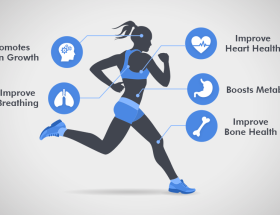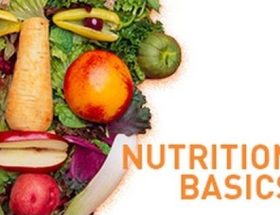Eating a balanced diet is crucial for maintaining good health and well-being. This holds true for all individuals, including vegetarians and vegans. Many people opt for vegetarian or vegan lifestyles for ethical, environmental, or health reasons. While both diets exclude meat, they differ in terms of the animal-derived products consumed. It is essential for individuals following these diets to ensure they are meeting their body’s nutritional needs. In this article, we will explore the key nutrients that vegetarians and vegans must pay attention to and provide some helpful tips for achieving a well-balanced diet.
Protein
Protein is an essential macronutrient that plays a vital role in muscle repair and growth. While meat is a significant source of protein, vegetarians and vegans can obtain their protein needs through plant-based sources. Excellent sources of plant-based protein include legumes like lentils, chickpeas, and black beans, as well as soy-based products such as tofu and tempeh. Nuts and seeds, such as almonds, chia seeds, and pumpkin seeds, also provide a good dose of protein. It is essential to consume a variety of these protein sources to ensure an adequate intake of all essential amino acids, especially for vegans.
Iron
Iron is a crucial mineral required for oxygen transport and energy production in the body. While it is commonly associated with meat consumption, vegetarians and vegans can obtain iron from plant-based sources. Leafy green vegetables like spinach and kale are rich in iron, as are legumes, fortified cereals, and dried fruits like apricots and raisins. Consuming these iron-rich foods with a source of vitamin C, such as citrus fruits or bell peppers, can help enhance iron absorption.
Calcium
Calcium is essential for bone health and various body functions. While dairy products are the primary source of calcium for many individuals, vegetarians and vegans can obtain adequate calcium from plant-based sources. Some excellent plant-based sources of calcium include fortified plant milks, tofu made with calcium sulfate, leafy green vegetables, and sesame seeds. It is crucial to pay attention to calcium intake, especially for vegans, who may need slightly higher amounts to meet their needs.
Vitamin B12
Vitamin B12 is predominantly found in animal-derived foods and plays a crucial role in nerve function and DNA synthesis. Vegetarians and vegans need to ensure they are getting an adequate intake of vitamin B12 through fortified foods like plant-based milk, cereals, and nutritional yeast. If needed, supplementation may be necessary to meet the body’s vitamin B12 requirements.
Omega-3 Fatty Acids
Omega-3 fatty acids are essential for heart health and brain function. While fatty fish is a common source of these beneficial fats, vegetarians and vegans can obtain omega-3s from plant-based sources like flaxseeds, chia seeds, walnuts, and algae-based supplements.
Conclusion
Following a balanced vegetarian or vegan diet is entirely possible as long as attention is paid to key nutrients. Protein, iron, calcium, vitamin B12, and omega-3 fatty acids are essential for optimal health. Including a variety of plant-based foods that provide these nutrients is crucial for achieving a well-rounded and balanced diet. Additionally, consulting with a healthcare provider or registered dietitian can provide personalized guidance and ensure that vegetarians and vegans are meeting their individual nutritional needs.
© 2021 YourWebsiteName.com | All rights reserved.








